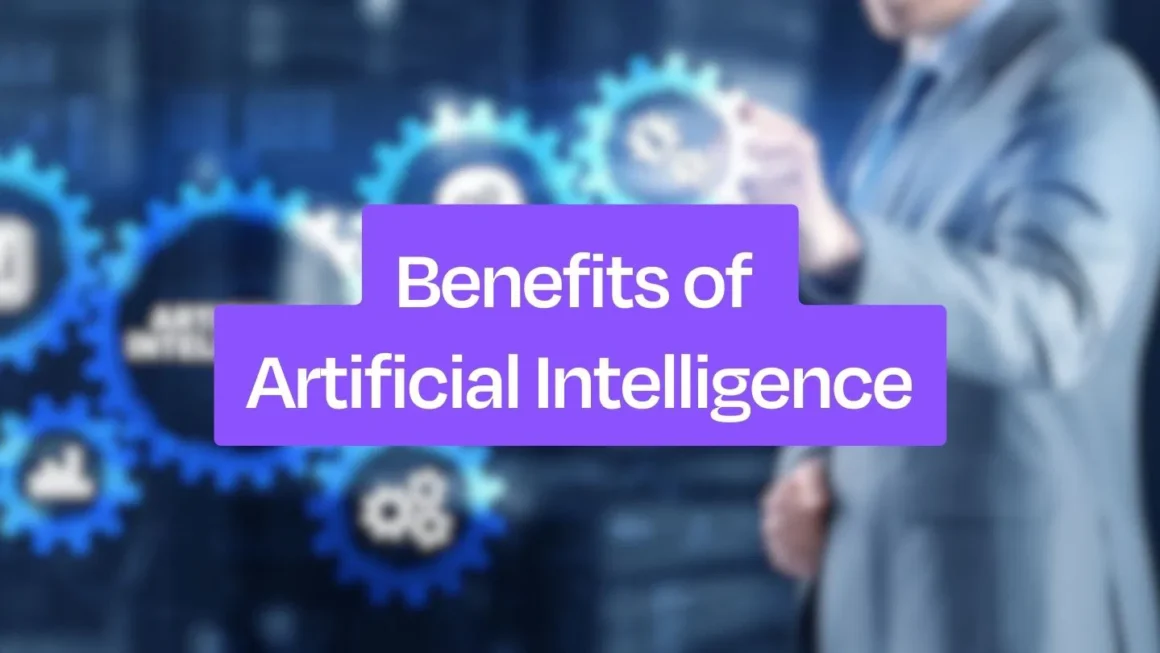Introduction To Artificial Intelligence
Artificial Intelligence has quickly become one of the most important technologies of the 21st Century. AI’s roots date back to the middle of the 20th century. It has since evolved from science fiction into a reality that affects almost every aspect in modern life. AI is the simulation of intelligence by computers, primarily computer systems. These systems are designed for tasks that require human intelligence such as reasoning, learning, language understanding, and problem solving.
AI is a broad term that encompasses many technologies and applications. It can range from simple algorithms to sort data, up to complex systems capable of making decisions and learning from their experiences. Machine learning is a subset AI that allows systems to improve over time their performance at tasks without being explicitly programed. Deep learning is a new advancement that involves neural networks that have many layers. This allows machines to process large amounts of data in a way that mimics human thought processes.
AI is becoming more prevalent in our everyday lives. It can take many forms. For example, virtual assistants such as Siri and Alexa. Recommendation algorithms on streaming platforms and ecommerce platforms. And even autonomous cars. These advances have resulted in increased efficiency, enhanced decisions capabilities, and innovative new products across multiple industries.
As AI develops, it raises important questions and challenges. AI is accompanied by a number of issues, including ethical concerns, job displacement potential, privacy concerns and the need for a regulatory framework. As society integrates AI into everyday life, it is important to understand both its potential benefits and drawbacks.
This article will examine the advantages and disadvantages that artificial intelligence has to offer, giving a balanced perspective on how this powerful technology shapes the future.
Artificial Intelligence: Advantages
AI Services offer numerous benefits which are reshaping the industries and improving our lives and working. Its capabilities are far beyond those of humans, bringing with them new levels in automation, precision and innovation. We explore below some of AI’s key benefits.
Automation
AI’s ability to automate mundane and repetitive tasks is one of its most important advantages. AI systems can free up resources and time by automating tasks that previously required human interaction. This allows businesses to concentrate on strategic activities. AI-driven automation can run continuously, without interruptions. This leads to greater efficiency and productivity. AI-powered robots, for example, can operate 24/7 on assembly lines in manufacturing. They produce goods faster and with less errors than humans.
Data analysis and decision-making
AI is able to process and analyze large volumes of data much faster and more accurately than humans. AI uses machine learning algorithms to identify patterns, correlations and insights that are not visible to humans. This is especially useful in industries like marketing, finance, and healthcare where data-driven decision making is crucial. AI, for example, can assist financial institutions in detecting fraudulent transactions in real time by analyzing patterns. It can also help doctors diagnose diseases by comparing data from patients with medical databases.
Improved Accuracy and Precision
AI systems are built to perform tasks at a high level of precision and accuracy, which is often superior to human capabilities. AI is a powerful tool for applications that require precision, like manufacturing or surgical procedures. It leads to improved outcomes, such as more reliable products and successful medical interventions. AI can also improve accuracy by learning from previous data.
Productivity and 24/7 availability
Unlike humans AI systems don’t require rest, sleep or breaks. They can work around the clock and provide consistent performance, without getting tired. AI-powered chatbots are able to handle customer inquiries 24/7, increasing customer satisfaction. AI is also beneficial to industries such as logistics and supply-chain management. AI can optimize routes, schedules, and ensure timely deliveries, while reducing downtime.
Innovation in Various Industries
AI drives innovation in many sectors, enabling new business models, products, and services. AI is used in healthcare to create personalized medicine, predict outcomes for patients, and even find new drugs. AI is the core of the autonomous driving technology in the automotive industry. This technology promises to revolutionize the transportation. Retailers use AI to improve inventory management and personalize the shopping experience. AI is also having an impact on the creative industries, which are using tools to assist with content creation, entertainment, design and more.
Enhance Customer Experience
AI improves the customer experience by providing a personalized, efficient, and responsive service. AI can tailor interactions to better suit customer preferences by analyzing data. AI is used by virtual assistants such as Siri, Alexa and Google Assistant to respond to queries and make everyday tasks easier. AI-driven recommendation systems in e-commerce suggest products based upon past purchases and browsing behaviors, increasing customer satisfaction and driving more sales.
These benefits show how AI transforms various aspects of industry and society. AI creates new opportunities by automating tasks, improving decision-making and driving innovation. These advancements also bring with them challenges, which must be overcome to harness the full potential of AI responsibly.
Disadvantages Artificial Intelligence
Artificial Intelligence offers many benefits but also has some challenges and disadvantages. AI is integrating into many sectors. It’s vital to take these drawbacks into consideration to ensure its development and deployment is managed responsibly.
Unemployment and Job Displacement
AI’s potential to replace human jobs is one of the biggest concerns. AI and automation technology are becoming more advanced. They can now perform tasks previously performed by humans. This could lead to the loss of jobs in certain industries. AI-powered robots and machines in manufacturing could replace assembly line workers and chatbots can be used in customer service to reduce the need for humans. AI-related jobs can create new opportunities, but the transition for workers who no longer need their skills could be difficult. This can lead to social and economic inequality.
Privacy and Ethical Concerns
AI raises important ethical and privacy concerns, especially in the way it is used to gather, process and analyze personal information. AI systems rely on a large amount of data in order to work effectively. However, this can raise concerns over how the data is collected, stored and used. AI algorithms used in surveillance systems, for example, can be used to monitor individuals in an invasive manner, while facial recognition can violate privacy rights. AI algorithms that are biased can lead to unfair outcomes such as discrimination when it comes to hiring or law enforcement. This raises ethical questions regarding the fairness and transparency AI systems.
Implementation Costs are High
AI technology can be expensive to develop and implement, which makes it difficult for smaller businesses or organizations that have limited resources. AI costs include hardware and software purchases, but also maintenance, training, and updates. The complexity of AI systems can also increase costs, as they require specialized knowledge. The financial barriers that many companies face when adopting AI can hinder their ability to compete on a market increasingly driven by AI.
Lacking Human Creativity and Empathy
AI is capable of excelling at tasks involving logic, data processing and pattern recognition. However, it does not possess the inherent human qualities such as creativity, empathy, intuition and intuition. AI systems are based on data and algorithms, so they can’t generate original ideas or grasp the emotional context in a given situation. This limitation is most evident in fields requiring creative problem solving, emotional intelligence or personalized human interaction, such as counseling or creative arts. In these fields, relying on AI too much can result in outcomes that are efficient, but lack the nuance and depth that human creativity and empathic abilities provide.
Technology Dependence
AI is becoming more and more integrated in our daily lives, which has led to a growing concern over technology dependence. This reliance on AI can reduce human abilities and skills, especially in areas where AI performs tasks that used to be performed by humans. The use of AI-driven navigational systems, for example, may reduce our ability to understand maps and find our way around without help. Over-reliance on AI could also make society vulnerable to cyber-attacks and technological failures. This could have wide-spread, potentially catastrophic effects.
Security risks and potential misuse
AI poses significant security risks. This is especially true when it comes to misuse. AI systems are vulnerable to malicious hacking, manipulation or exploitation, which can lead to a variety of security concerns. AI, for example, can be used to create cyber-attacks that are difficult and impossible to detect, like deepfake videos, or automated phishing scams. AI-driven war is also possible with the use of AI for autonomous weapons systems, in which machines can make life or death decisions without human oversight. AI can be misused in harmful ways, which is why it’s important to have strong security measures to regulate its use and to establish ethical guidelines.
AI is a complex, multifaceted technology. It has the ability to make significant advances, but it also presents risks and challenges which must be managed carefully. AI is evolving and addressing these challenges will be critical to ensure that AI benefits society while minimising its negative effects.
A Balanced View of AI
Artificial Intelligence is advancing and integrating into many aspects of our daily lives. It’s important to find a balance between the benefits it brings and its challenges. AI can revolutionize industries and improve efficiency. It also has the potential to enhance quality of life. However, there are risks associated with AI that need to be managed carefully to ensure its positive impact on society.
Maximizing AI’s Benefits
It’s important to use AI in a way that complements human abilities, rather than replacing them. We can maximize the potential of AI by focusing on it as a tool to complement human skills. This will help us drive innovation, improve productivity and solve complex problems. In healthcare, AI could assist doctors in analyzing data and making suggestions for diagnoses. However, the final decision should be made by trained professionals. AI in business can optimize operations, provide insights to help leaders make informed choices, and allow organizations to thrive on competitive markets.
The importance of education and training is also crucial to maximizing AI’s benefits. We can reduce the risk of losing jobs by preparing the workforce to work with AI. This will also prepare them for the changing job market. Reskilling and lifelong learning initiatives can assist workers in transitioning into new roles utilizing AI technologies. This will create opportunities for professional and personal growth.
AI Challenges and Solutions
AI has many advantages but it is important to consider the issues it raises to ensure its ethical and sustainable development. One of the main concerns is that AI could lead to job loss, especially in industries where automation replaces human labor. In order to address this problem, businesses and policymakers must work together to develop strategies that help workers transition to new industries and roles. This could include investing in retraining, promoting entrepreneurship and creating safety networks for those affected.
Ethics are also a critical factor in weighing the pros and cons. To prevent bias, discrimination and privacy violations, it is important to develop AI systems that are fair, transparent and accountable. By establishing ethical guidelines and regulatory structures, we can ensure that AI benefits are distributed fairly and responsibly across society. It is important to protect individuals’ privacy and secure data.
Promoting Responsible AI Development
In order to balance the pros of AI and its cons effectively, it is important to cultivate a culture of responsible AI. It is important to engage a wide range of stakeholders in the discussion about how AI can be developed and deployed. This includes technologists, business leaders, policymakers and members of the public. Collaboration between these groups could lead to standards and best practices for AI development that are ethical, safe, and in line with societal values.
Research and development are also essential to ensure that AI evolves in a way that benefits humanity. We can address challenges and explore new applications by supporting AI innovation. For example, improving AI’s understanding and response to human emotions, or developing stronger security measures against AI-driven threats.
Looking to the Future
AI will continue to evolve and grow, increasing its impact on the society. To balance the pros and con of AI, a proactive strategy is needed that anticipates and tackles any potential issues before they escalate. We can make sure that AI contributes to both a prosperous and equitable future by embracing its benefits while being vigilant about the risks.
AI can be a force for good if it is managed responsibly and with care. We can build a future in which AI improves our lives, while also minimizing the negative effects, by focusing on collaborative development, ethical development and continuous learning. Our collective ability to steer AI’s development in a way that is in line with our values and priorites as a community will be the key to finding a balance between its pros and cons.




